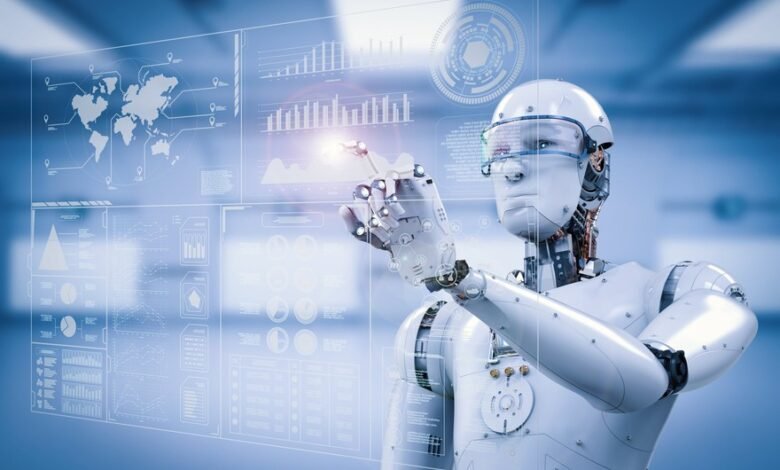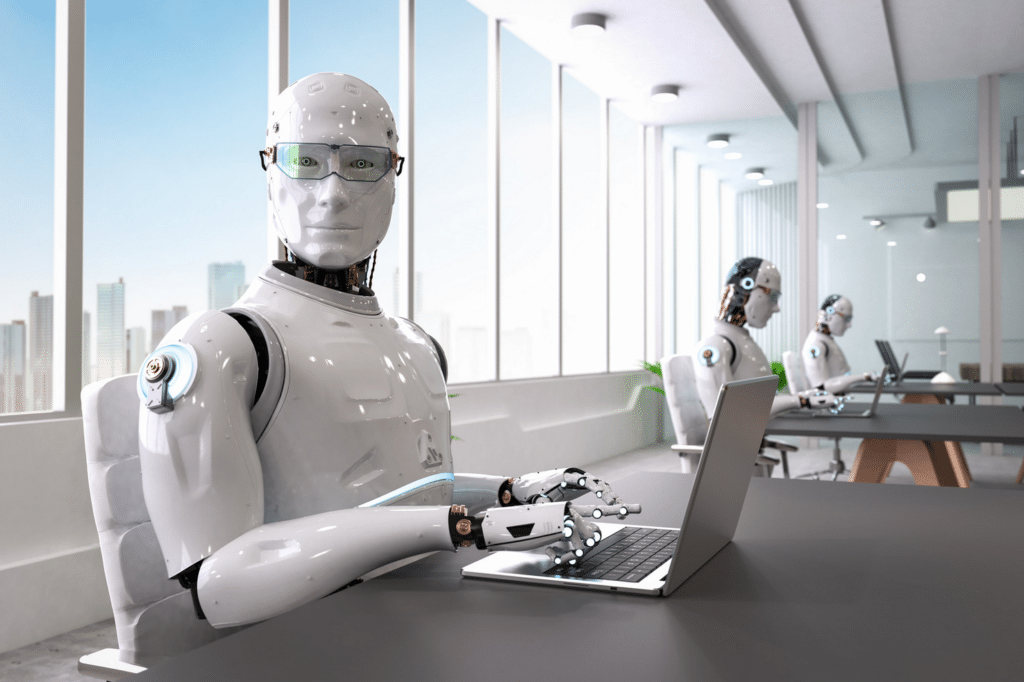Future of Robotics: In The Industries and Daily Life Technology

In the midst of the fourth industrial revolution, robotics will transform our world in unprecedented ways, as we stand witness to this technological shift. From automated factories to autonomous vehicles, the future of robotics promises increased efficiency, productivity, and convenience. In this comprehensive article, we will delve into the advancements in robotics, the applications across various sectors, and the implications for society.
Advancements in Future of Robotics Technology

Artificial Intelligence and Machine Learning
One of the most significant advancements driving the future of robotics is the integration of Artificial Intelligence (AI) and Machine Learning (ML). These technologies enable robots to learn from data, make decisions, and adapt to new situations without human intervention. AI and ML algorithms enhance the capabilities of robots, allowing them to perform complex tasks with high precision and efficiency.
Future of Robotics in Enhanced Sensors and Actuators
Modern robots equip themselves with a variety of sensors to perceive their environment in detail. These sensors include LIDAR, infrared, ultrasonic, and camera-based systems. Advanced actuators provide robots with improved movement capabilities, enabling them to perform delicate and intricate tasks. The combination of sophisticated sensors and actuators allows robots to interact more effectively with their surroundings.
Future of Robotics in Edge Computing and Connectivity
Edge computing brings computation and then data storage closer to the sources of data, which is essential for real-time processing and decision-making in robots. Coupled with the advancements in 5G technology, robots can now communicate and then operate in a highly connected environment. This connectivity enhances their ability to work collaboratively in complex settings.
Applications in Future of Robotics Across Various Sectors

Manufacturing and Industrial Automation
In the manufacturing sector, robotics is revolutionizing production lines. Industrial robots are capable of performing repetitive tasks with high precision, leading to increased productivity and reduced error rates. Collaborative robots (cobots) work alongside human workers, enhancing efficiency and then safety in factories.
Future of Robotics in Healthcare and Medical Robotics
Medical robots are transforming healthcare by assisting in surgeries, rehabilitation, and patient care. Surgical robots provide surgeons with enhanced precision and control during operations, leading to better outcomes and reduced recovery times. Rehabilitation robots aid patients in regaining mobility and then strength after injuries or surgeries. Tasks such as medication delivery and patient monitoring are performed by robots.
Agriculture and Food Production
Agricultural robots are addressing the challenges of labor shortages and increasing food demand. These robots can also perform tasks such as planting, harvesting, and sorting crops. They use advanced imaging and AI algorithms to detect pests and diseases, ensuring higher crop yields and quality. In food production, workers use robots for packaging, quality control, and handling hazardous materials.
Service and Hospitality
In the service and hospitality industry, robots are enhancing customer experiences. Service robots can also perform tasks such as cleaning, room service, and concierge services. In restaurants, robots are being used for cooking and serving food. These robots not only improve efficiency but also provide unique and engaging experiences for customers.
Logistics and Supply Chain Management
The logistics sector is leveraging robotics to optimize supply chain operations. Autonomous mobile robots (AMRs) are used in warehouses for tasks such as picking, packing, and transporting goods. Drones are being employed for inventory management and last-mile delivery. These technologies reduce operational costs and improve delivery times.
Construction and Infrastructure
Construction robots are addressing the challenges of labor shortages and then increasing project demands. They use advanced imaging and AI to ensure precision and safety on construction sites. Robotics in construction also enhances project timelines and reduces costs.
Future of Robotics in Implications for Society

Economic Impact
The widespread adoption of robotics is expected to have a profound economic impact. Automation will lead to increased productivity and efficiency, driving economic growth. However, there will also be a shift in the job market. While some jobs may be displaced by robots, new opportunities will arise in areas such as robot maintenance, programming, and supervision. It is essential to invest in education and training to prepare the workforce for these changes.
Ethical and Social Considerations
The integration of robotics into society raises several ethical and social considerations. Issues such as privacy, security, and ethical use of AI need to be addressed. There is a need for robust regulations and standards to ensure the safe and responsible deployment of robots. Additionally, the impact on social interactions and the potential for increased inequality should be carefully managed.
Future of Robotics in Environmental Impact
Robotics has the potential to contribute to environmental sustainability. Robots can also optimize resource use, reduce waste, and enhance energy efficiency. In agriculture, robots can also minimize the use of pesticides and fertilizers by targeting specific areas. In manufacturing, robots can also help reduce emissions and improve the overall environmental footprint of production processes.
Conclusion
The future of robotics holds immense promise for transforming various sectors and improving the quality of life. The advancements in AI, sensors, connectivity, and edge computing are driving the capabilities of robots to new heights. As we embrace this technological revolution, it is crucial to address the associated economic, ethical, and environmental considerations. By doing so, we can also ensure that robotics contributes positively to society and paves the way for a more efficient, productive, and sustainable future.
Read more: Future of Mobile





